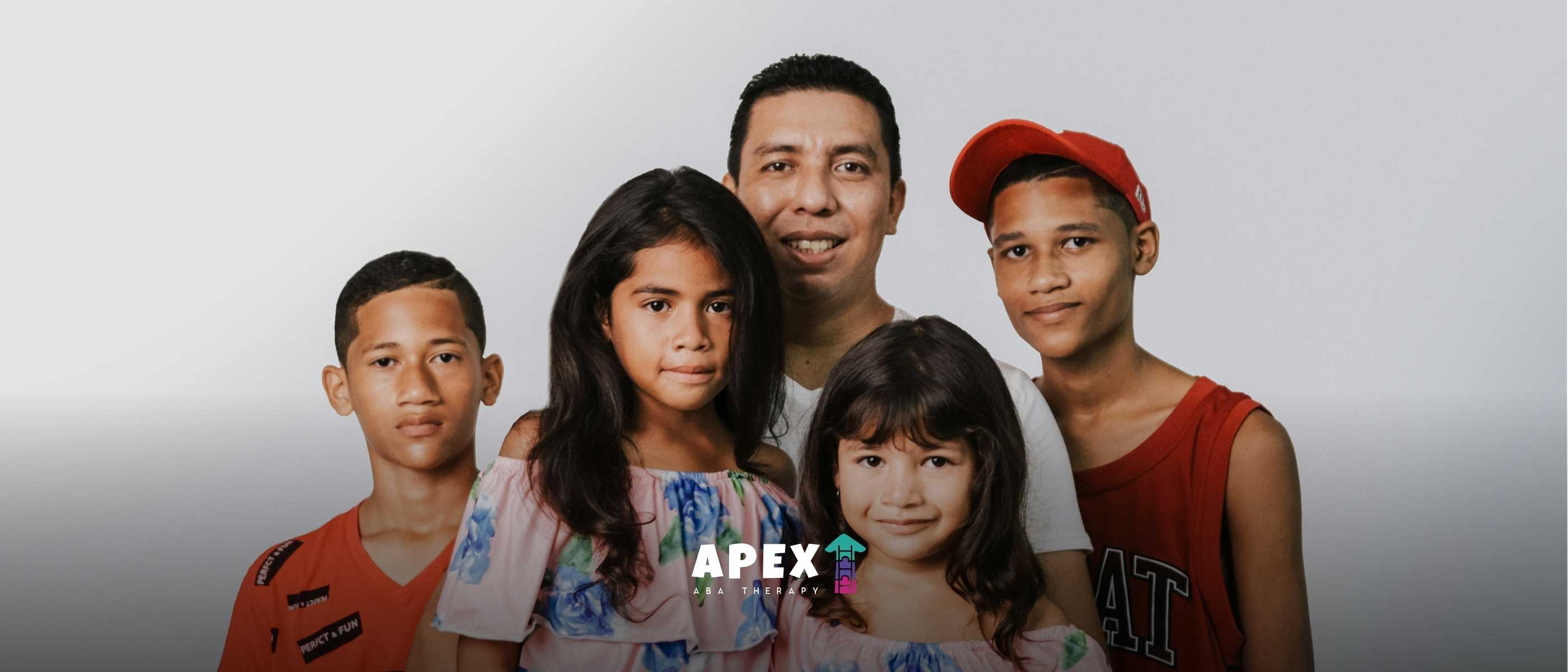Rejection Sensitive Dysphoria
Is rejection sensitive dysphoria in the DSM? Unveil the truth about this complex condition and its impact on mental health.

Rejection Sensitive Dysphoria
Understanding Rejection Sensitive Dysphoria (RSD)
Rejection Sensitive Dysphoria (RSD) is a term commonly used by healthcare professionals and experts to describe exaggerated reactions to perceived rejection. While RSD is not an officially recognized diagnosis in the Diagnostic and Statistical Manual of Mental Disorders, Fifth Edition (DSM-5).
Definition and Background
RSD refers to the heightened sensitivity and intense emotional response individuals may experience in response to real or perceived rejection. Although it is not formally recognized as a specific diagnosis, the term is frequently used by professionals to describe these reactions.
Individuals with RSD may have a heightened fear of rejection, leading them to interpret even minor cues or interactions as indications of being rejected. This may result in intense feelings of sadness, anger, or anxiety. The emotional response to rejection can be overwhelming and disproportionate to the situation at hand, affecting an individual's overall well-being and interpersonal relationships.
Unofficial Diagnostic Status
While RSD is not officially recognized as a standalone diagnosis in the DSM-5, it is important to note that the concept of rejection sensitivity itself has been studied and recognized in the DSM-5. Rejection sensitivity is often associated with conditions such as ADHD and borderline personality disorder [3].
In the United States, RSD is not considered a formal symptom of ADHD. However, emotional dysregulation, which can include aspects of rejection sensitivity, is one of the six fundamental features used to diagnose ADHD in the European Union. This highlights the variation in recognition and diagnostic criteria across different regions.
While the formal recognition of RSD may be subject to ongoing debate, it is crucial to acknowledge the experiences of individuals who identify with these symptoms. Awareness and understanding of rejection sensitivity can help facilitate appropriate support and interventions for those who may be impacted by this phenomenon.
Link Between RSD and ADHD
Rejection Sensitive Dysphoria (RSD) has been closely associated with Attention-Deficit Hyperactivity Disorder (ADHD). While the exact relationship between RSD and ADHD is still being explored, there is evidence to suggest a connection, particularly in terms of brain structure and emotional dysregulation.
Brain Structure Differences
According to Dr. Eugene Arnold, a psychiatrist and behavioral health specialist at Ohio State University, individuals with ADHD are more likely to exhibit symptoms of RSD due to differences in brain structure [1]. In people with ADHD, the frontal lobe of the brain, responsible for attention, language, social skills, impulse control, judgment, and problem-solving, may function differently. This can result in difficulties in recognizing or attending to social cues, collaborating within a team, and processing details effectively.
The amygdala and the prefrontal cortex, located at the front of the brain, play crucial roles in processing and responding to rejection, failure, emotional awareness, and negative messages. These regions are responsible for regulating emotions and behavior. In individuals with ADHD, there may be challenges in regulating the emotional responses related to rejection, leading to heightened sensitivity and intense emotional reactions.
Emotional Dysregulation in ADHD
The emotional dysregulation commonly observed in individuals with ADHD can contribute to the development and amplification of RSD. Rejection and negative experiences can be perceived as more distressing and painful for individuals with RSD due to difficulties in regulating emotional responses. This intensified emotional reaction is thought to be related to the genetic connections between RSD and ADHD, as ADHD often runs in families [2].
The inability of the ADHD brain to effectively regulate pain-like activity may explain why rejection and failure are significantly more troubling for individuals with RSD. These intense emotional responses may impact various aspects of life, including relationships, self-esteem, and overall well-being.
While more research is needed to fully understand the complex relationship between RSD and ADHD, it is clear that there are links between these conditions. The differences in brain structure and emotional dysregulation in individuals with ADHD contribute to the heightened sensitivity and intense emotional reactions characteristic of RSD. Recognizing and addressing these connections can help in developing effective strategies for managing both conditions.
Factors Contributing to RSD
Rejection Sensitive Dysphoria (RSD) can be influenced by various factors, including genetics and family history, as well as past experiences of rejection. Understanding these factors can provide insight into the development and manifestation of RSD.
Genetics and Family History
Genetics may play a role in the development of RSD, particularly due to its close association with Attention-Deficit/Hyperactivity Disorder (ADHD) WebMD. Research suggests that ADHD, which is closely linked to RSD, often runs in families. However, further study is needed to fully understand the genetic connections between RSD and other mental health conditions.
Past Experiences and Rejection
Past experiences of rejection can significantly contribute to the development of rejection sensitivity. Individuals who have experienced rejection earlier in life, such as from caregivers or in social situations, may be more prone to developing RSD Health.com. Childhood experiences of rejection, abuse, or neglect can shape an individual's perception of themselves and others, leading to heightened sensitivity to rejection.
Rejection sensitivity can arise as a defense mechanism, where individuals who have experienced rejection expect it to occur later in life. This anticipation of rejection can make them more sensitive to even perceived signs of rejection. Rejection from parents, peers, or other significant relationships can contribute to the development of heightened rejection sensitivity.
Understanding the factors that contribute to RSD, such as genetics and past experiences of rejection, can help shed light on this complex condition. By recognizing these influences, individuals and mental health professionals can develop strategies and interventions to better support and manage the symptoms associated with RSD.
Symptoms and Impact of RSD
Rejection Sensitive Dysphoria (RSD) is characterized by a unique set of symptoms that can have a significant impact on an individual's emotional well-being. Understanding these symptoms is crucial in recognizing and addressing RSD effectively.
Emotional Pain and Intensity
People with RSD describe experiencing an intense level of emotional pain triggered by rejection or disapproval, which is unlike most other forms of pain, whether emotional or physical [2]. This emotional pain can be overwhelming and may persist even after the triggering event has passed. It is important to note that the emotional pain associated with RSD is different from typical feelings of rejection.
The intensity of emotional pain in individuals with RSD can lead to a range of emotional responses, including sadness, anger, frustration, and even feelings of worthlessness. These emotions may be disproportionate to the situation at hand, making it challenging for individuals with RSD to manage their reactions effectively.
Difficulty Managing Reactions
Managing reactions becomes particularly challenging for individuals with RSD. They may interpret interactions as rejection, even when no rejection or disapproval is intended. This hypersensitivity to perceived rejection can lead to social anxiety, avoidance of certain situations, and strained relationships.
The fear of rejection can also influence the behavior of individuals with RSD. They may become overly cautious, seeking constant reassurance and approval to mitigate the intense emotional pain they anticipate. This fear of rejection can limit their willingness to take risks or engage in activities where the possibility of rejection exists.
The impact of RSD on an individual's daily life can be profound. It can affect their self-esteem, relationships, and overall emotional well-being. Understanding and recognizing the symptoms of RSD is essential in providing support and implementing effective strategies to help individuals cope with and manage this condition.
While RSD is not an officially recognized diagnosis in the DSM-5, it is a term used by experts in connection with recognized conditions like ADHD. Research on RSD is limited, but it is most commonly associated with ADHD and has also been linked to other personality and mood disorders. By acknowledging and addressing the symptoms of RSD, individuals can find ways to navigate their emotional experiences and improve their overall quality of life.
Diagnosis and Treatment Approaches
When it comes to the diagnosis and treatment of rejection sensitive dysphoria (RSD), it's important to note that RSD is not included in the Diagnostic and Statistical Manual of Mental Disorders, Fifth Edition (DSM-5), which is the primary resource for mental health diagnoses. As of now, RSD is not officially recognized as its own specific formal diagnosis, although the term might be used informally in various places online. However, experts often discuss RSD in connection with recognized conditions like attention deficit hyperactivity disorder (ADHD).
Absence from DSM-5
Rejection sensitive dysphoria's absence from the DSM-5 means that it does not have a specific diagnostic code or criteria to guide mental health professionals in assessing and diagnosing individuals with this experience. However, it is important to note that emotional dysregulation, which can manifest as rejection sensitivity, is recognized as one of the six fundamental features used to diagnose ADHD in the European Union.
Mindfulness-Based Interventions
While RSD may not have a specific treatment approach outlined in the DSM-5, there are strategies that individuals with RSD can explore to manage their emotional experiences. One such approach is mindfulness-based interventions.
Mindfulness involves cultivating an awareness of the present moment, accepting one's thoughts and feelings without judgment. It can help individuals with RSD become more attuned to their emotional responses and develop strategies to regulate and cope with intense emotions. Mindfulness-based interventions, such as mindfulness meditation and mindfulness-based stress reduction programs, have shown promise in reducing emotional reactivity and improving overall well-being.
By practicing mindfulness, individuals with RSD can develop a greater sense of self-awareness, recognize triggers for emotional distress, and learn to respond to rejection or perceived rejection in a more adaptive manner. While mindfulness-based interventions may not directly address RSD, they can provide valuable tools for managing emotions and promoting overall mental well-being.
It's important to note that seeking support from mental health professionals, such as therapists or counselors, can also be beneficial for individuals experiencing RSD. These professionals can provide personalized guidance and support, drawing upon their expertise to help individuals explore effective coping strategies and develop resilience in the face of rejection sensitivity.
Though RSD may not have an official diagnostic status, individuals experiencing intense emotional pain related to rejection can find support and guidance through therapy, mindfulness practices, and other evidence-based interventions. By seeking appropriate help and exploring coping strategies, individuals with RSD can work towards managing their emotional reactions and improving their overall quality of life.
RSD and Other Mental Health Conditions
Rejection Sensitive Dysphoria (RSD) is not typically considered a standalone diagnosis, but rather a symptom that can be associated with various mental health disorders. It is often recognized as a diagnostic criterion or feature in conditions such as anxiety, borderline personality disorder, and ADHD. Let's explore the association between RSD and anxiety as well as borderline personality disorder.
Association with Anxiety and Borderline Personality Disorder
Rejection sensitivity has been found to be a diagnostic criterion or feature in conditions such as anxiety and borderline personality disorder. Individuals with anxiety may experience heightened sensitivity to perceived rejection, leading to increased distress and emotional reactivity in social situations. The fear of rejection can significantly impact their self-esteem and overall well-being.
Similarly, individuals with borderline personality disorder often exhibit intense and unstable interpersonal relationships, which can be influenced by rejection sensitivity. They may have an intense fear of abandonment and experience extreme emotional reactions to perceived rejection or criticism. Rejection sensitivity can contribute to the difficulties they face in maintaining stable and healthy relationships.
Rejection Sensitivity as a Symptom
Rejection sensitivity is believed to be linked to past experiences with rejection, particularly during early life from caregivers or in social situations. These experiences can lead individuals to develop a heightened expectation of rejection, making them more sensitive to rejection as a defense mechanism [3]. Consequently, rejection sensitivity is often considered a symptom rather than a distinct illness.
While rejection sensitivity is not officially recognized as a diagnosis in the DSM-5, it serves as an important aspect in understanding and addressing various mental health conditions. Identifying and addressing rejection sensitivity can be crucial in the overall management and treatment of these conditions.
Mindfulness-based interventions have shown promise in reducing rejection sensitivity. By bringing awareness to the sensitivity at the moment it is experienced, individuals can learn to recognize and challenge their automatic negative thoughts and emotional reactions. This approach has demonstrated benefits in disorders characterized by rejection sensitivity, including social anxiety and borderline personality disorder.
Understanding the association between rejection sensitivity and other mental health conditions can provide valuable insights into the interconnected nature of these disorders. By addressing rejection sensitivity as a symptom and incorporating appropriate therapeutic interventions, individuals can work towards improving their emotional well-being and interpersonal relationships.
References
- https://www.webmd.com/add-adhd/rejection-sensitive-dysphoria
- https://my.clevelandclinic.org/health/diseases/24099-rejection-sensitive-dysphoria-rsd
- https://www.health.com/rejection-sensitive-dysphoria-7110554
- https://www.additudemag.com/rejection-sensitive-dysphoria-adhd-emotional-dysregulation/
- https://www.psychologytoday.com/us/basics/mindfulness
Frequently Asked Questions
.jpg)
Autism And Bed Wetting: Unlocking Solutions
Explore the connection between autism and bedwetting and find practical insights and solutions for parents and caregivers. Discover how understanding and support can make a difference in managing this common challenge for children and individuals on the autism spectrum.

Proven Examples of Smart Goals for Students with Autism
Unlock the potential of students with autism through proven examples of SMART goals. Set them up for success!
.jpg)
What is the Sensory Processing Disorder ICD-10 Code?
If you or someone you know has been diagnosed with Sensory Processing Disorder (SPD), you may have heard of the ICD-10 code. In this article, we'll explain what the SPD ICD-10 code is, what it means, and why it's important.

Understanding Vestibular Stimming in Autism
Demystifying vestibular stimming in autism: Understand the impact, strategies, and support for individuals. Uncover the power of self-regulation through stimming.

Do Amish Kids Get Autism?
Explore the prevalence of autism in Amish children and uncover the factors that may contribute to this phenomenon. Delve into the unique characteristics of Amish communities and their impact on autism rates.

Breaking Barriers: Free Sensory Toys for Autism That Make a Difference
Discover life-changing free sensory toys for autism! Unlock the power of sensory play for children with autism.

Famous People Thriving with Autism or Aspergers Syndrome
Discover the extraordinary journeys of famous people thriving with autism and Asperger's syndrome. Unveil the inspiring stories of icons who break stereotypes.

IEP Goals for Autism: Ultimate Guide
Unlock the potential: Constructing meaningful IEP goals for autism to support your child's growth and development. Discover strategies and examples!

Young Celebrities with Autism
Discover inspiring young celebrities with autism and their journeys in entertainment and advocacy.
.jpg)
Autism Hand Posturing: Causes, Types, and Management
Autism hand posturing refers to repetitive and often purposeless movements or postures of the hands and fingers seen in individuals with autism. These movements range from simple hand flapping to more complex finger twisting and tapping.

Distinguishing ADHD vs Autism Stimming
ADHD stimming vs autism stimming: Discover the motivations and characteristics behind these behaviors in individuals.

Addressing Rigid Thinking in Autism
Unlocking flexibility in autism! Discover strategies, therapy, and tools to address rigid thinking for a brighter future.

DSM 6 Release Date Revealed
Unlock the future with DSM-6! Discover the release date and anticipated changes in the mental health landscape.

Why Do Autistic People Rock?
Uncover insights with empathy, exploring the diverse ways rocking serves as a coping mechanism and sensory regulation for individuals on the autism spectrum. Join us in celebrating the beauty of neurodiversity, fostering understanding and appreciation for this distinctive aspect of autistic experience.

Signs Your Toddler Is Not Autistic
Discover reassuring signs that your toddler may not be autistic in this human-centered guide. Explore the joy of your child's unique developmental journey, celebrating their social engagement and communication skills.
.jpg)
Facial Features & Physical Characteristics Of Autism
Some researchers believe that these physical characteristics are related to the underlying neurological differences in individuals with autism.

The Three Main Causes of Autism: Exploring Genetics, Environment, and Brain Differences
Autism is influenced by genetics, environmental factors, and brain differences. Learn how these three causes contribute to the development of the condition.

What are the Common Behaviors of Autism?
Autism behaviors can vary widely. Learn about the most common traits, from social difficulties to sensory sensitivities, and how ABA therapy can support progress.

What Age is Too Late for ABA Therapy?
It’s never too late to start ABA therapy. Discover how children, teens, and adults can still make meaningful progress with personalized ABA support.

Is In-Home ABA the Right Fit for Your Child? Here’s What You Need to Know
In-home ABA therapy offers a tailored approach to support your child’s development. Learn how it can improve key skills like communication, social interaction, and more.

How Families Can Make ABA Therapy a Positive and Successful Experience
Learn how families can ensure ABA therapy is a positive, successful experience. Discover tips for involvement, consistency, and support to make ABA effective.

Can a Child Have Autism and Still Talk Normally?
Can a Child Have Autism and Still Talk Normally?

What Are the Red Flags for Autism in a 2-Year-Old?
Autism Red Flags in 2-Year-Old Children | Apex ABA

Is Autism a Lifelong Condition?
Is Autism a Lifelong Condition? Understanding The Journey

Best Age to Start ABA Therapy & What Parents Should Know
Best Age to Begin ABA Therapy for Children | Apex ABA

What’s the Difference Between High-Functioning Autism and Asperger’s?
Difference Between High-Functioning Autism and Asperger’s

ABA Therapy Enhancing Social Skills: A Key to Improved Communication and Interaction for Children with Autism
How ABA Therapy Helps Children Build Social Skills

Misconceptions About ABA Therapy: Clearing Up the Myths
Common Misconceptions About ABA Therapy | Apex ABA

What Does It Mean to Be “On the Spectrum”?
What Does It Mean to Be on the Autism Spectrum? | Apex ABA

Understanding the Power of Functional Behavior Assessment ABA
Effective ABA Techniques for Behavioral Intervention

Discover How ABA Helps ADHD in Your Child’s Life
How ABA Therapy Helps Children with ADHD | Apex ABA

Life-Changing ABA Therapy Case Studies You Need to Know
Real Success Stories from ABA Therapy Journeys | Apex ABA

Can Children “Outgrow” Autism?
Can Children Outgrow Autism? Understanding the Facts

Is Autism a Mental Illness or a Developmental Disorder?
Mental Illness or Developmental Disorder Explained

Is Autism More Common in Boys Than Girls?
Autism in Boys vs Girls: What the Research Reveals

What is the Difference Between Autism and Sensory Processing Disorder?
Autism vs Sensory Processing Disorder Differences | Apex ABA

What's the Difference Between Autism and Speech Delay?
Autism vs Speech Delay & Key Differences Explained | Apex

ABA Therapy in North Carolina: A Complete Guide for Families
Learn everything about ABA therapy in North Carolina, including services, costs, insurance coverage, and how to choose the best ABA provider in North Carolina.

ABA Therapy vs Preschool: Making the Right Choice Explained
Learn the key differences between ABA therapy and preschool to help you choose the best option for supporting your child’s early learning and development.

Which Personality Type Is Most Likely to Be Autistic?
Which Personality Type Is Most Likely to Be Autistic? | Apex ABA

Why Consistency Matters: What Happens If ABA Therapy Ends Prematurely
What Happens If ABA Therapy Is Stopped Too Early? | Apex ABA

How Can You Gain an Autistic Person’s Attention? Tips for Meaningful Connection
How Can You Gain an Autistic Person’s Attention?

Sensory Sensitivity and Sixth Sense: What Autism Research Shows
Do Autistic People Have Sixth Sense? | Apex ABA

What Happens If Autism Is Left Untreated?
Can Autism Get Worse If Untreated? | Apex ABA

What Not To Do With An Autistic Child: Avoid These 10 Mistakes
What Not To Do With An Autistic Child? | Apex ABA

Coping with Regressive Autism: Tips for Parents
What is Regressive Autism? | Apex ABA

Do Autistic Kids Live with Parents Forever? Here’s the Reality
Do autistic kids live with parents forever? Discover the facts about independence and living arrangements in autism with expert-backed insights.

Red Flags in ABA Therapy: What Parents Must Watch For
What are the red flags in ABA therapy? Learn to identify warning signs for safe, effective autism treatment in this blog.

Can You Go from Level 3 Autism to Level 1? Is It Possible?
Can you go from level 3 autism to level 1? Learn about progress, therapy, and support options with expert help from Apex ABA.

Autism vs Introversion: How to Tell the Difference
Is it autism or just introversion? Learn the key differences and signs with expert insights from Apex ABA.

ABA for Managing Transitions: Tips to Ease Change for Kids
Learn how ABA for managing transitions helps children with autism handle change smoothly.

Understanding the 7 Dimensions of ABA for Better Outcomes
Discover the 7 Dimensions of ABA and how they can lead to better outcomes.

5 Unique Autistic Love Languages You Should Know About
Discover the 5 unique autistic love languages that can enhance your relationships.

Transforming Futures: Improving Lives of Kids with Autism
Discover how innovative strategies are focused on improving lives of kids with autism.

ABA Therapy Techniques for Addressing Repetitive Behaviors in Autism
Harnessing ABA Strategies to Tackle Repetitive Behaviors in Autism

The Role of ABA Therapy in Enhancing Communication Skills
Transforming Communication for Children with Autism Through ABA Therapy

How ABA Therapy Supports Effective Communication in Nonverbal Children
Unlocking Speech Through ABA: Transformative Paths for Nonverbal Children

How to Help Your Child Transfer Skills Learned in ABA Therapy to Real Life
Unlocking Real-World Success for Children in ABA Therapy

How ABA Therapy Helps Children Develop Better Organizational Skills
Empowering Children with ABA Therapy for Enhanced Organizational Skills

The Importance of Creating a Structured Routine in ABA Therapy
How Structured Routines Transform ABA Therapy for Autism

The Role of ABA Therapy in Developing Conflict Resolution Skills
How ABA Therapy Transforms Conflict Resolution Competence

The Importance of Generalization in ABA Therapy for Autism
Unraveling the Role of Generalization in Enhancing ABA Therapy Outcomes

Why ABA Therapy is Crucial for Parents of Children with Autism
The Transformative Impact of ABA Therapy on Families with Autistic Children

How to Involve Parents in the ABA Therapy Process
Maximize Parent Engagement in ABA Therapy for Better Outcomes

What are the Core Principles of ABA Therapy?
Exploring the Cornerstones of Applied Behavior Analysis

Why Communication is Key in ABA Therapy for Autism
The Crucial Role of Communication in ABA Therapy for Autism

Why ABA Therapy Works for Children with Autism Regardless of Severity
Effective ABA Interventions for All Levels of Autism

Why It’s Important to Maintain a Balanced Approach to ABA Therapy
Balancing Effectiveness and Ethics in ABA Therapy

The Role of ABA Therapy in Developing Adaptive Behavior Skills
Exploring How ABA Therapy Transforms Lives

The Benefits of Combining ABA Therapy with Speech Therapy
Maximizing Development with Integrated Therapy Approaches

What to Expect During an ABA Therapy Session
Demystifying ABA Therapy Sessions: A Comprehensive Overview

How ABA Therapy Enhances Cognitive Functioning in Children with Autism
Exploring the Influence of Applied Behavior Analysis on Autism Cognition

How ABA Therapy Helps Children with Autism with Transitions Between Activities
Easing Transitions for Children with Autism: The Role of ABA Therapy

How to Foster Cooperation Between Parents and Therapists in ABA Therapy
Building Effective Partnerships in ABA Therapy

The Role of Positive Reinforcement in ABA Therapy
Exploring the Impact of Positive Reinforcement in Modern ABA Therapy

Why ABA Therapy is Effective for Children of All Ages
Understanding the Reach and Impact of ABA Therapy Across Age Groups

How to Support Your Child’s Emotional Growth with ABA Therapy
Harnessing ABA Therapy for Enhancing Emotional Development in Children with Autism

The Role of ABA Therapy in Enhancing Peer Relationships for Children with Autism
Harnessing ABA Therapy to Boost Social Connections Among Autistic Children

How to Overcome Common Challenges in ABA Therapy
Navigating Hurdles in ABA Therapy: Strategies and Solutions

How to Manage Behavioral Expectations with ABA Therapy
Understanding Applied Behavior Analysis in Behavioral Management

How ABA Therapy Promotes Emotional Regulation in Children with Autism
Unlocking Emotional Balance: ABA Therapy's Role in Autism

How ABA Therapy Improves Social Skills in Children with Autism
Harnessing ABA Therapy to Enhance Social Competency in Autistic Children

The Role of ABA Therapy in Classroom Success for Children with Autism
Harnessing ABA for Academic and Social Growth in Autism

The Importance of Evaluating and Revising ABA Therapy Goals Regularly
Regular Evaluations: The Cornerstone of ABA Therapy Success

How to Choose the Right ABA Therapy Program for Your Child
Finding the Perfect ABA Therapy Fit for Your Child

The Role of Behavior Analysts in Implementing ABA Therapy
Understanding the Vital Contributions of Behavior Analysts in ABA Therapy

The Role of RBTs (Registered Behavior Technicians) in ABA Therapy
A Closer Look at the Essential Work of RBTs in ABA Therapy

What Makes ABA Therapy Effective for Different Learning Styles?
Unraveling the Flexibility and Effectiveness of ABA Therapy

Understanding the Importance of Data Collection in ABA Therapy
The Role of Data in Shaping Effective ABA Therapy

How ABA Therapy Helps with Toilet Training in Children with Autism
Unlocking Independence: ABA's Role in Autism Toilet Training

The Importance of Encouraging Natural Play in ABA Therapy
Revolutionizing ABA Therapy with Natural Play

How to Make the Most of ABA Therapy at Home
Enhancing ABA Therapy Practices Within Your Home

How to Make ABA Therapy Fun and Engaging for Children with Autism
Transforming ABA Therapy into a Fun Learning Journey

The Role of ABA Therapy in Addressing Verbal and Nonverbal Communication in Autism
Enhancing Communication Skills in Autism Through ABA Therapy

Understanding the Role of Family in ABA Therapy for Autism
The Crucial Impact of Family Engagement in Autism Therapy

How to Handle Setbacks and Challenges in ABA Therapy
Navigating Difficulties and Setbacks in ABA Therapy for Children

How ABA Therapy Can Help Children Build Stronger Relationships with Peers
Unpacking the Influence of ABA Therapy on Peer Relationships in Children

Understanding the Concept of Shaping in ABA Therapy
Demystifying Shaping Techniques in Applied Behavior Analysis

How ABA Therapy Enhances Independent Living Skills in Autism
Unlocking Independence: The Role of ABA Therapy in Autism
.jpg)
90+ Reading Statistics, Facts and Demographics
In this article, we will dive into 60 reading statistics that shed light on the importance of reading and its impact on different aspects of life.



